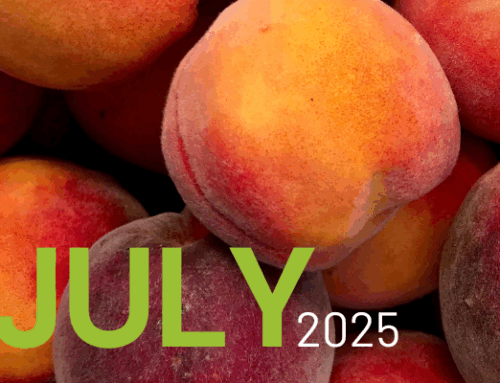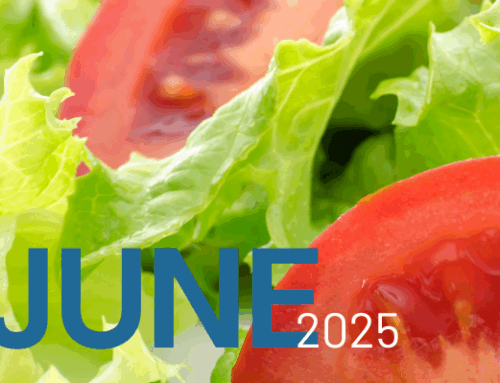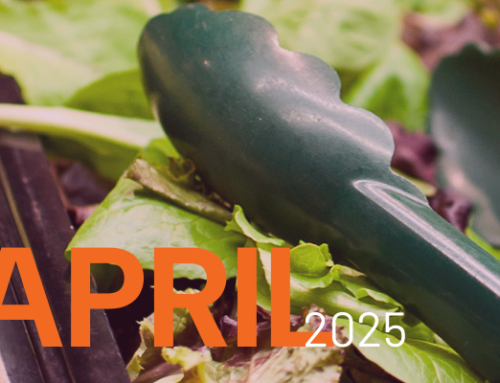The results are in! We have been busy at the Center crunching the numbers for Boulder Valley School District (BVSD) School Food Project to analyze their baseline purchasing practices. We expected to see an impressive score reflective of the leadership Chef Ann Cooper and the whole School Food Project team have put toward its vision for what school food can—and should be—for its students. Now that the official baseline score is in, let us be the first to congratulate the team at BVSD on being awarded the first 5-star ranking in our history and becoming the newest institution to earn the Good Food Provider seal by meeting—and in this case, exceeding!—baseline standards in all five value categories.
Our executive director, Alexa Delwiche, underscores the role BVSD has to play in the national movement for good food procurement:
“Boulder Valley School District, under Chef Ann Cooper’s leadership, has been blazing trails in the school food world for years. And once again, BVSD is proving exactly what’s possible by investing our public food dollars in a food system that supports good jobs, regional producers, the environment, and high welfare standards for farm animals, while increasing access to healthy food for students.”
Through local food purchasing, BVSD invested $890,700 into the Colorado economy – over 41 percent of its total food spend, which translates to over 2.19 million meals. Almost 10 percent of these purchases came from small, local farms within 200 miles of the school district. BVSD’s designation as the highest ranking Good Food Provider proves it’s possible for school districts with very limited budgets to not only excel, but lead the way, in building a food system based on the Program’s values without increasing food costs.
With the addition of two bonus points for Value Chain Equity & Innovation, BVSD earned 27 total points – the highest amount awarded for any entity to date and became the first ever to earn a 5-star ranking with the Center.
“This award is to be shared with all school food and nutrition professionals. It is proof positive that a school district can actually influence a local or regional food economy,” said Chef Ann Cooper, Director of Food Services at BVSD. “I want our record high score to catalyze school districts everywhere to now believe they can be at the vanguard of not just school food improvement, but overall societal change.”
We agree, Chef Ann! We applaud the vision and commitment of the team at BVSD and count ourselves fortunate to be working alongside you to impact even more school meals through the Good Food Purchasing Program in the years ahead.
About Boulder Valley School District:
The Boulder Valley School District (BVSD) is a public PK-12 school district located in the extended Denver metropolitan area with 56 pre-kindergarten through twelfth grade schools. Although designated an ‘urban’ district, BVSD occupies a 500-square-mile region along the foothills of the Rocky Mountains that includes nine major urban, suburban and rural communities. Total enrollment as of January 1, 2018, was just over 31,000. The District’s students are demographically diverse: 30% minority, 19% low-income, 10% English Language Learners, and 11% with disabilities. For more about BVSD, please visit bvsd.org.
About Boulder Valley School District’s School Food Project:
At the BVSD School Food Project, we believe that for kids to learn, think and be the best they can be, they have to eat well. Because of this, we are dedicated to improving the health of each student by providing healthy food and offering nutrition education programs to grow young bodies and minds. We serve fresh and nutritious food every day. This amounts to nearly 13,000 scratch-cooked meals each day! We use locally sourced and organic ingredients whenever possible, and we avoid highly processed foods, high fructose corn syrup, chemicals, dyes and food additives. Salad bars are offered daily at every school and are stocked with fresh, delicious and when possible, local farm fresh produce. In addition to feeding students healthy meals, SFP emphasizes lunchroom education programs to increase students’ food literacy and help them make informed decisions about the types and amounts of food they put in their bodies. Learn more at bvsd.org/food.
Header photo credit: Kirsten Boyer




